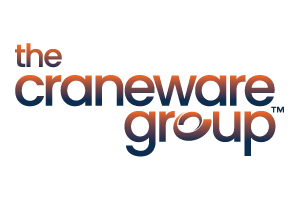SPONSORED CONTENT
In the complex landscape of healthcare, compliance with the Health Resources and Services Administration’s (HRSA) 340B program is paramount for covered entities. As organizations strive to optimize their participation in the program, one critical aspect is preparing for HRSA audits. To shed light on this crucial process, we turn to Kristin Andolfo, a seasoned expert in navigating HRSA audits. Kristin is a 340B ACE Senior Consulting Advisor at The Craneware Group.
With over 300 HRSA audits under its belt, along with extensive experience in handling manufacturer, state, and external audits, The Craneware Group is uniquely positioned to offer valuable insights on how covered entities can effectively prepare for HRSA audits. See our step by step below guide below:
1. Alert and Gather All Key Players
The first step in preparing for a HRSA audit is to ensure that all relevant stakeholders within the organization are informed and engaged. This includes representatives from pharmacy, finance, compliance, and any other departments involved in 340B program operations.
2. Review Data Requests, Understand What Is Being Asked
HRSA audits typically involve extensive data requests covering various aspects of 340B program compliance. It is essential to carefully review these requests and gain a clear understanding of the specific data elements being sought by the auditors.
3. Assemble Data to Ensure Accessibility and Legibility
Once the data requests have been comprehensively reviewed, the next step is to assemble the necessary data. It is crucial to ensure that all required data elements are readily accessible and presented in a legible format for the auditors’ review.
4. Review Data Ahead of Time Before Turning It Over to the Auditor
Before submitting the data to the auditors, it is advisable to conduct a thorough review internally. This step allows covered entities to identify any discrepancies or issues in the data and address them proactively, minimizing the risk of findings during the audit.
5. Mock Audit: Understand What Will Be Looked at and Be Comfortable with Navigating
To further prepare for the audit process, covered entities can benefit from conducting mock audits. This involves simulating the audit experience to familiarize key stakeholders with the audit procedures and expectations. By understanding what will be scrutinized during the audit and becoming comfortable with navigating the process, organizations can enhance their readiness and confidence.
Leveraging Expertise for Success
As covered entities embark on their journey to prepare for HRSA audits, partnering with experienced advisors can provide invaluable support. With a wealth of knowledge and a proven track record in guiding organizations through the audit process, experts like The Craneware Group offer tailored solutions to help mitigate risks and ensure compliance with HRSA requirements.
HRSA audits represent a critical aspect of maintaining compliance with the 340B program. By following a systematic approach to preparation and leveraging the expertise of seasoned advisors, covered entities can navigate the audit process with confidence, safeguarding their participation in the program and ultimately advancing their mission of providing accessible healthcare services to underserved populations.

Kristin Andolfo is senior consulting advisor at The Craneware Group. She can be reached at kandolfo@craneware.com.




